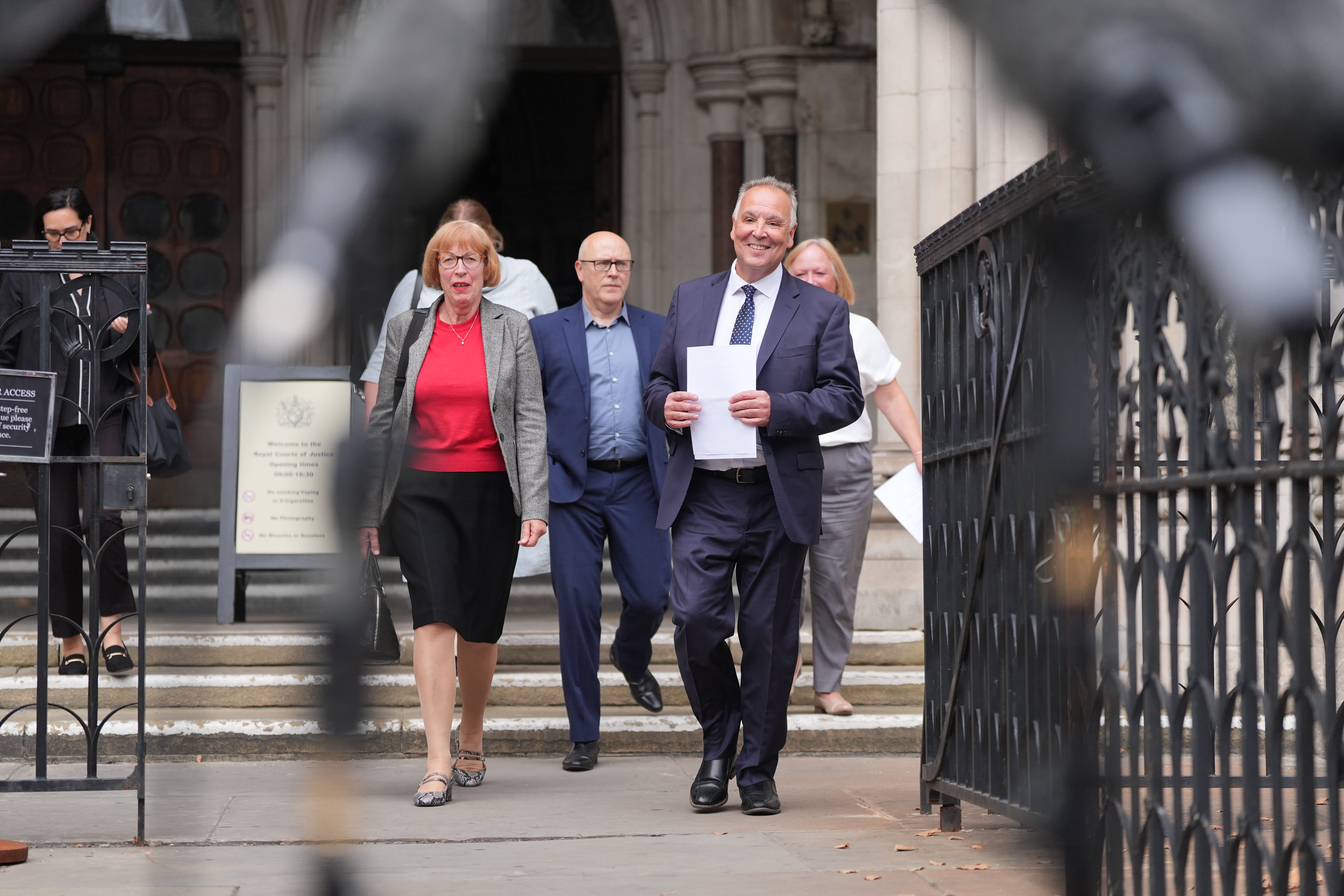Labour is bracing for a wave of legal action that could displace thousands of asylum seekers after councils across England signalled they could seek to ban hotels for migrants.
Home Office minister Dan Jarvis has said that the government is working on contingency plans for housing asylum seekers after Epping Forest District Council was granted a temporary High Court injunction, forcing the removal of the 136 migrants who live there, in a landmark ruling on Tuesday.
The order blocks asylum seekers from being housed at the Bell Hotel in Epping, Essex, which has been the site of a series of violent protests that have seen police officers injured and multiple people arrested for disorder in recent weeks.
Former Tory immigration minister Robert Jenrick called for “all patriotic councils to follow Epping’s lead and pursue injunctions”, and deputy leader of Reform, Richard Tice, urged residents to protest at hotels housing migrants to force their removal.
Shadow home secretary Chris Philp has demanded Labour hold an emergency cabinet meeting to address the “migrant crisis”, and called on home secretary Yvette Cooper to commit that none of the asylum seekers in the Bell would be moved into hotels, houses, apartments or social housing.
He cited Tory plans to use larger sites to house asylum seekers, despite the National Audit Office finding use of former military bases to be significantly more expensive than paying for hotel accommodation.
Analysis of Home Office figures by The Independent shows that the government has already made progress on cutting the asylum backlog, with the number of people waiting for initial decisions on their applications dropping to 78,000 from its peak of 133,000 in 2023 under the Tory government.
While over 100,000 asylum seekers are being housed by the government as they wait for their claims, just a third – 32,345 people – are in hotels. In London, as many as 65 per cent of asylum seekers are housed in hotels as the government scrambles for limited accommodation.
Hotels cost the government up to £170 a night per asylum seeker – around six times higher than other forms of accommodation, according to the Migration Observatory.
At least eleven district or borough councils – including some Labour-led ones – have now said that they will assess their legal options after the Epping ruling, two more are in conversation with the Home Office about changes to hotels in their area, and a further four said they would monitor developments in the legal bid.
Reform-run county councils have also said they will push for legal action against any asylum hotels in their areas; however, decisions to bring a legal challenge over planning restrictions will be down to individual districts.
Charity Refugee Council said that “everyone agrees that hotels are the wrong answer” and called on the Home Office to resolve asylum applications quickly, so “people can either rebuild their lives here or return home with dignity”.

Steve Smith, CEO of Care4Calais, said that government had “failed in its first duty to protect the residents of the Bell Hotel” and exposed them to “weeks of hate”. He added: “It’s the government’s failure to protect the residents that opened the space for a challenge on planning grounds, which has handed the far-right something to claim victory on”.
Mr Jarvis, the security minister, said that asylum seekers in Epping would be “appropriately accommodated” at other sites – but failed to rule out their being moved to other hotels. He added that “we’ll see over the next few days and weeks” whether more legal cases will follow.
Spelthorne Borough Council said it was “working closely with legal counsel in light of the recent High Court ruling”, which it said “may have significant implications” for a hotel in the village of Stanwell.

A Labour council leader in Tamworth, Staffordshire, where violence broke out against asylum seekers in hotels during the riots last year, said that they were reviewing legal options in light of the Epping judgment.
Carol Dean said the council hadn’t sought an injunction against the hotel in its area when it was first used in 2022 because other legal challenges had been unsuccessful, but that they would be “reviewing our legal position in light of this significant ruling”.
Labour-led Wirral council also said it was considering its options after being told by the Home Office at the end of June that a former hotel in the area will soon be used to house single male asylum seekers. The former hotel is currently being used to house asylum-seeking families, and no planning application has been made to change the use of the hotel, the council said.
In South Ribble, Lancashire, the council said that use of asylum hotels in its area had been “imposed on us by government”, and it would “explore all of our options”.
Simon Tagg, leader of Newcastle-under-Lyme Borough Council, said that while there are no asylum hotels in their area, they had continuing concerns about the use of houses in multiple occupation (HMO) and short-term lets for migrants.
Leader of Newcastle City Council, Karen Kilgour, said that the use of hotels for asylum seekers was “not appropriate or sustainable” and added that the council were in “active discussions with the Home Office” about getting more control over the placement of migrants in the city.
In South Norfolk, the council said it had already issued an enforcement notice on the owners of an asylum hotel in early August, requiring them to submit a planning application for a change of use.
Somani Hotels Ltd, the company that owns the Bell Hotel in Epping, failed to apply for a change of use after receiving advice that it would not be necessary. Mr Justice Eyre ruled against them on Tuesday, saying that there was an arguable case that the Bell was no longer a hotel.
Several councils contacted by The Independent said that while they had asylum hotels in their area, they had no intention of seeking legal action to move refugees out.
Antrim and Newtownabbey Council probes hotel being used for asylum seekers
Is Labour really failing on immigration and asylum hotels?
How many asylum seekers are in UK hotels and why are they being housed there?
Hopes that ICRIR can deliver truth and accountability around the Shankill bomb
Scottish Labour MSP Colin Smyth arrested and charged over indecent images
Hunger-driven A&E admissions spiral in England in cost-of-living crisis







